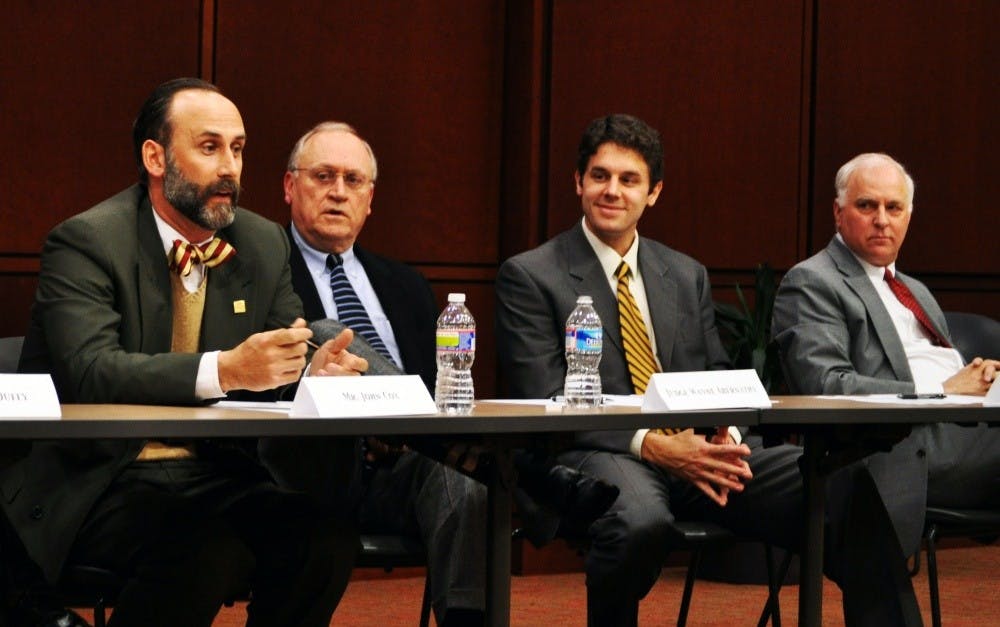Attending cultural events is a part of being an Elon University student, especially for first year students taking a Global Experience class.
In many of these classes, professors require students to attend a certain number of cultural events. But if professors did not require students to attend these events, would they have the same attendance numbers?
Freshman Eric Halperin said although he is required to attend events for class, he usually chooses to go to events he finds interesting and enjoys attending them.
"It's cool because almost all of them are things I would never get to experience in high school," he said. "For that reason I think it's OK that professors require them because many of them provide unique outlooks on topics that you may not see other places."
He also said while the events he has attended this year have been full and he enjoyed them, he thinks they are full mainly because students are required to attend. But even if they weren't required, he said he still would probably attend them because the events interest him beyond what is discussed in class, and he enjoys the different perspectives on issues he hears at panels Elon brings to campus.
"Since part of Elon's goal is about encouraging globalization, exploring different cultures through some of these cultural events, whether they are required or not, is beneficial," said sophomore Scott Balerno. The number of events needed per class varies with each Global Experience professor.
Many require their students to go to events because they connect with global themes discussed in class. Laurin Kier, assistant professor of sociology, said she requires attendance at events for two reasons.
"One is that I want students to know and understand the breadth of cultural opportunities available at Elon and, hopefully, by going to some they'll appreciate the value of the cultural events to their lives," she said. "Secondly, the Global Experience curriculum has common themes that all GST 110 classes revolve around, and I want my student to see the universality of these themes."
For the past two years, the Office of Cultural and Special Programs has been working to draw more students to events.
Jeff Clark, executive director of Cultural and Special Programs, said the first two events this semester, which were the Second City shows put on in collaboration with the Student Union Board, were both sold out and the majority of tickets went to students.
Bringing speakers and events that supplement what students are learning in the classroom has become a main focus for the office, Clark said.
"I think it's a good thing if the event is relevant to the class," he said. "Something we have worked on is finding events and speakers that are relevant to the classes. We are also doing more listening as to what students want to see and what they might want to attend."
The Office of Cultural Programs has begun going through Smith Jackson, vice president and dean of Student Life, for events like Convocation for Honors to try to reach out to more students, as well. Posters around campus and advertisements on the digital sign boards in Moseley Center are used to make students aware of what is happening on campus.
Attendance at cultural events last year increased by 54 percent, and right now, Clark said, the office is on track to surpass that number.
"A year and a half to two years ago there were a lot of empty seats, but through the efforts I've talked about we have reached out to more students," he said. "We've really made an effort to engage the students more, and we'll continue to do that"


